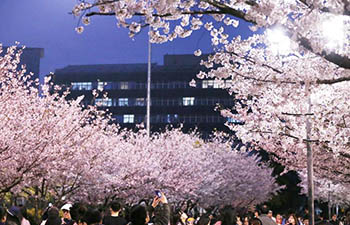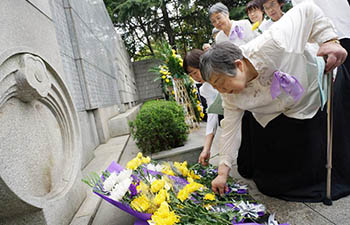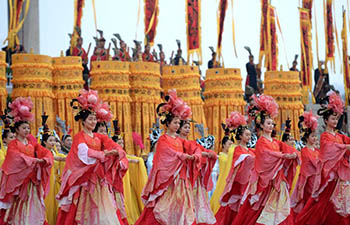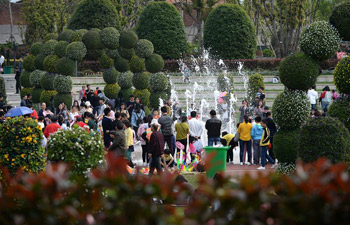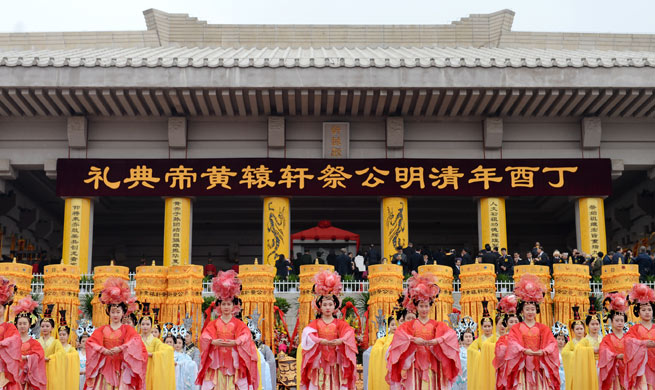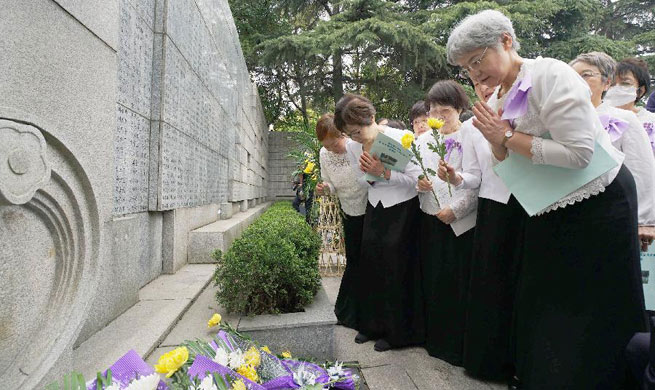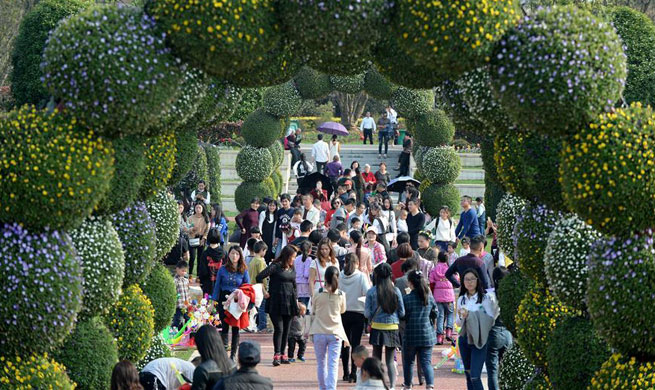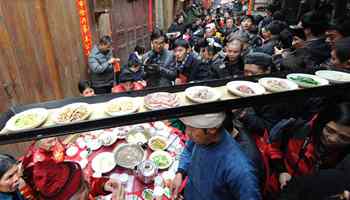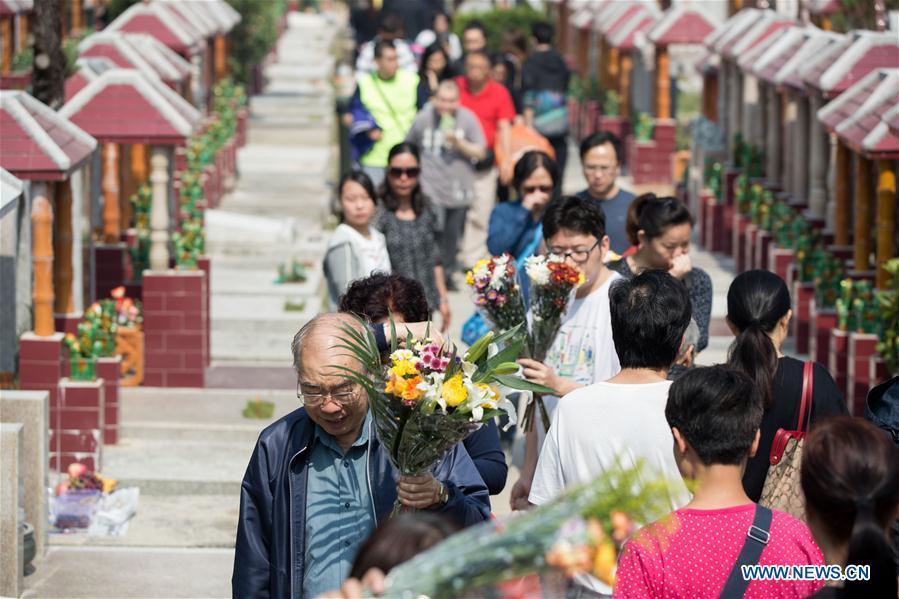
Residents visit graves of their relatives during the Qingming Holiday or Tomb Sweeping Day in Macao, south China, April 4, 2017. (Xinhua/Cheong Kam Ka)
BEIJING, April 4 (Xinhua) -- China's Tomb Sweeping Day is a time for people to cherish the memory of their deceased loved ones and recall the past.
People are celebrating the festival in novel ways to help them think about where they have come from and where they will go.
A GREENER FESTIVAL
Tomb Sweeping Day, which falls on April 4 this year, is a time for Chinese people to mourn the dead and worship their ancestors by visiting tombs and making offerings. Traditionally, the tributes involve burning incense and paper money.
However, as air pollution has plagued many Chinese cities in recent years, some cities have come up with measures to make the festival greener.
Before Tomb Sweeping Day, the city of Harbin, capital of northeast China's Heilongjiang Province, issued a statement to ban the production and sale of paper money. People made offerings of flowers and aeolian bells instead when visiting tombs.
A funeral parlor in Harbin has set up a special booth for people to whisper to their deceased family members during the three-day holiday.
The Harbin funeral affairs management station established an online platform on messaging app Wechat for citizens to take part in online memorial activities such as offering flowers, lighting candles and writing articles to remember deceased family members, friends and ancestors.
During Tomb Sweeping Day, south China's Hainan Province launched a campaign in 10 cemeteries to exchange visitors' paper money for flowers.
In cemeteries in the cities of Haikou and Sanya, volunteers helped visitors fetch fresh flowers and took their paper money.
"It is a good, environmentally friendly and green idea. I will try it this time," said a tomb visitor, surnamed Zhang, in Sanya.
A DAY FOR REFLECTION
Many believe Tomb Sweeping Day is a day for reflection, allowing them to look back on their past and think of what they can improve in the future.
A memorial for extinct animals has tapped into this sentiment. The memorial was held Tuesday in a wild animal park in northwest China's Qinghai Province. Volunteers said they hope to raise people's awareness of animal protection on a day when people are remembering the deceased -- not only people, but also animals.
"We have held these memorials for four years. This year's theme is Pere David's deer, which went extinct in China by 1900 due to natural disasters and hunting," said Liu Ke, a staff member with the Qinghai-Tibet Plateau Wild Zoo in Xining City, capital of Qinghai.
"Life is so beautiful. If we do not protect the environment and animals, they will die out one day," said Wang Jianguo, a visitor at the zoo, after participating in the memorial for extinct animals.
CULTURAL PRESERVATION
Tomb Sweeping Day is called Qingming Festival in China. Qingming is among the 24 solar terms -- important astronomical points on the Chinese calendar -- listed by the United Nations Educational, Scientific and Cultural Organization (UNESCO) as an Intangible Cultural Heritage of Humanity in November 2016.
Qingming is a favorite time for a spring outing in China.
On Tuesday, the Qingming Culture Festival was held in Kaifeng City in central China's Henan Province.
Sixty-three cultural activities, including playing the diabolo and sending willow branches as gifts, were featured during the festival.
Local officials believe the festival can help people learn more about traditional Qingming customs.
In neighboring Shaanxi Province, more than 10,000 people attended an elaborate ceremony in Huangling County to pay homage to Huangdi, or the Yellow Emperor, who was considered the founder of Chinese civilization and the ancestor of the Chinese.
A memorial dance accompanied by ritual music was performed at the emperor's tomb. People wearing Han Dynasty (202 B.C.- 220 A.D.) costumes made bows and presented flowers to the tomb.
The Yellow Emperor, a sovereign and cultural hero in Chinese mythology, is believed to have reigned from 2,697 BC to 2,598 BC. His deeds have been embellished with time, having been credited with introducing the systems of government and law to humans and civilizing the Earth.





